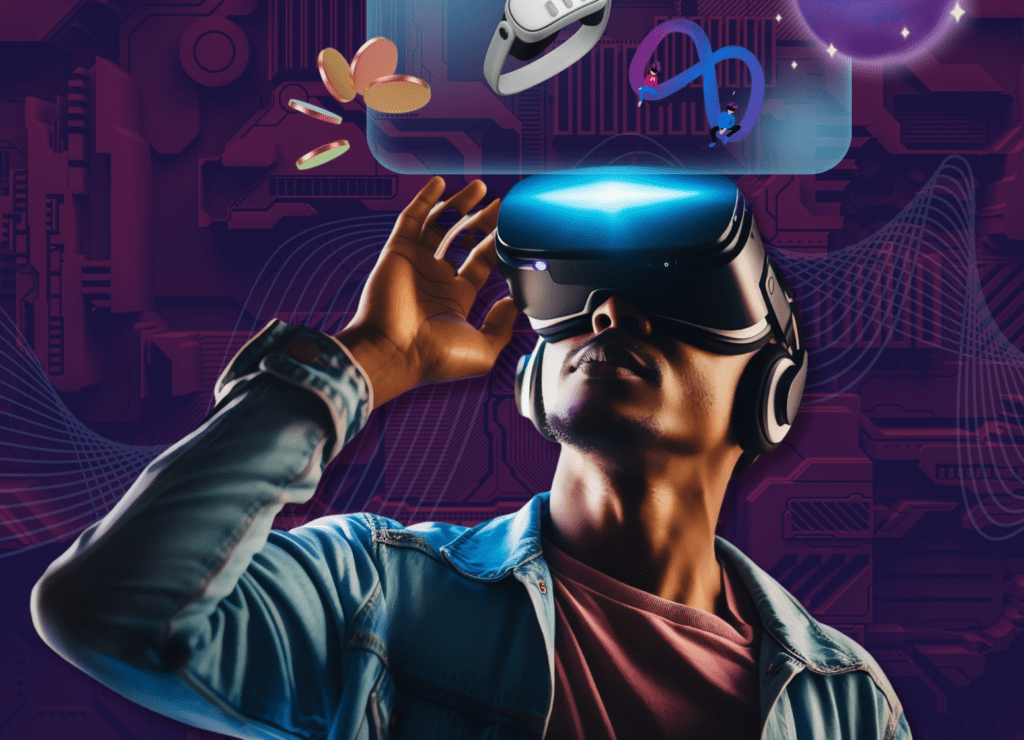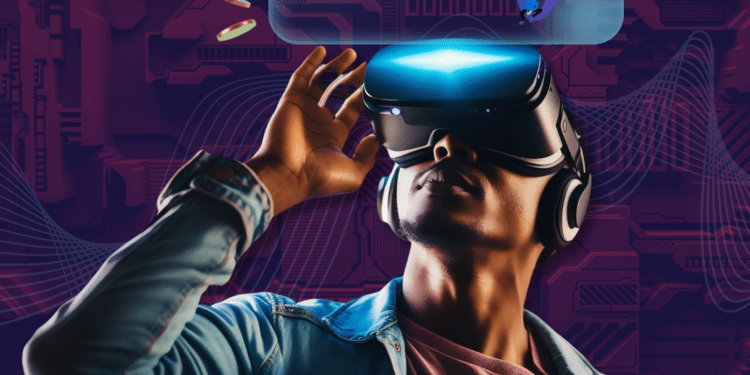Introduction:
The metaverse, a concept that has captured the imagination of technologists and investors alike, is more than just a buzzword. It represents a convergence of virtual and physical realities, where users can interact with each other and digital objects in immersive and persistent online environments. This article explores the evolving landscape of the metaverse, examining its key components, potential applications, and the challenges that lie ahead.
Key Components of the Metaverse:
- Virtual Reality (VR) and Augmented Reality (AR): VR and AR technologies provide the immersive experiences that are central to the metaverse. VR immerses users in entirely digital environments, while AR overlays digital information onto the real world.
- Blockchain Technology: Blockchain can be used to create decentralized platforms that facilitate secure and transparent transactions within the metaverse, enabling users to own and trade digital assets.
- Artificial Intelligence (AI): AI plays a crucial role in powering the metaverse, enabling personalized experiences, intelligent agents, and the creation of realistic virtual worlds.
- Spatial Computing: Spatial computing allows users to interact with digital objects in three-dimensional space, enabling more intuitive and immersive experiences.
Potential Applications of the Metaverse:
- Gaming and Entertainment: The metaverse offers new opportunities for gaming experiences, from immersive virtual worlds to interactive live events.
- Social Connection and Collaboration: The metaverse can provide new ways for people to connect and collaborate, transcending geographical boundaries.
- Education and Training: The metaverse can create immersive and interactive learning experiences, simulating real-world scenarios and providing personalized instruction.
- Business and Commerce: The metaverse can revolutionize e-commerce, enabling virtual storefronts, interactive product demonstrations, and immersive brand experiences.

Challenges and Considerations:
- Technological Limitations: Current VR and AR technologies still have limitations in terms of performance, affordability, and user experience.
- Privacy and Security: Protecting user privacy and security in the metaverse is a critical challenge, as is preventing the misuse of virtual environments.
- Ethical Considerations: The metaverse raises ethical questions about digital identity, ownership, and the potential for social isolation and addiction.
- Regulation and Governance: Establishing clear regulations and governance frameworks for the metaverse is essential to ensure its responsible development and use.
The Future of the Metaverse:
The metaverse is still in its early stages of development, but its potential is vast and far-reaching. As technology continues to advance, we can expect to see the metaverse evolve into a more integrated and immersive part of our daily lives.
Conclusion:
The metaverse represents a paradigm shift in how we interact with technology and each other. While challenges remain, the potential benefits of the metaverse are significant, offering new opportunities for innovation, creativity, and human connection. By addressing the challenges and embracing the opportunities, we can shape the future of the metaverse in a way that benefits society as a whole.









